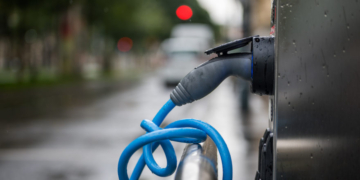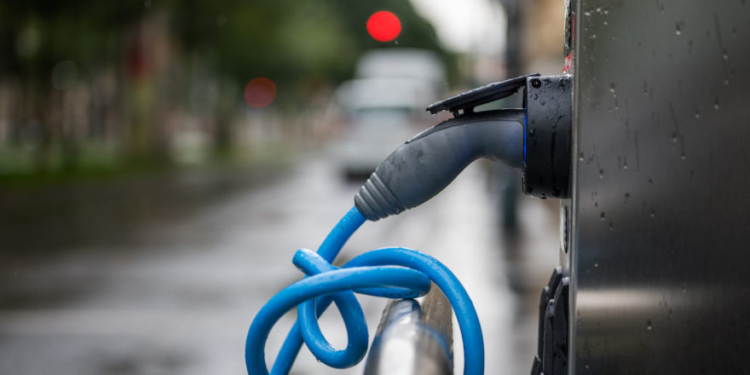South Korean companies are reconsidering investments into building electric vehicle (EV) battery plants in the United States, according to Bloomberg.
Some South Korean companies have slowed or halted the construction of some U.S. battery plants over concerns about slackening demand for EVs and President-elect Donald Trump’s impending return to the White House, according to Bloomberg. Trump’s proposed cuts to tax credits that have benefitted EV makers are causing some Korean companies to rethink their $54 billion U.S. investment plans.
The price of lithium, a key mineral used in EV batteries, dropped nearly 90% from their highs in 2022 due to slower-than-anticipated EV adoption, Bloomberg reported. Several South Korean companies announced plans for U.S. battery plants in 2022, promising the creation of thousands of jobs, following President Joe Biden’s Inflation Reduction Act being signed into law in August 2022, according to Bloomberg.
South Korea’s supply of batteries and battery materials has increased exponentially over the last few years, according to Aranca, a global research and analytics firm. South Korean-owned gigafactories will account for 43% of U.S. battery production growth over the next five years, according to Benchmark Source. Various Korean companies have been pumping billions of dollars into American manufacturing in recent years, with South Korean companies investing more in the U.S. than any other country in 2023.
Trump has long criticized EVs, and vowed to repeal the Biden administration’s EV measures in October 2023, calling them “insane.” The president-elect’s transition team is planning to undo the $7,500 consumer tax credit for EV purchases, Reuters reported last month.
On the campaign trail, Trump promised to “revolutionize” the U.S. auto industry and vowed to make interest on car loans fully tax deductible in an attempt to boost domestic auto production. Trump has also proposed to offer tax breaks for purchasing vehicles manufactured in the U.S., emphasizing that it would boost domestic auto industry jobs and benefit American automakers, according to CBT News. The president-elect has proposed introducing tariffs on various imported goods, causing some American companies to speed up shifting production out of other countries, such as China and Mexico.
The Biden-Harris administration has led a push to increase the usage of EVs nationwide as part of President Joe Biden’s signature climate agenda. Biden introduced stringent tailpipe emissions standards in March that would require about 67% of all light-duty vehicles sold after 2032 to be EVs or hybrids. The president also vowed to build 500,000 public EV chargers nationwide by 2030, although the charging network plans has thus far been significantly delayed.
All content created by the Daily Caller News Foundation, an independent and nonpartisan newswire service, is available without charge to any legitimate news publisher that can provide a large audience. All republished articles must include our logo, our reporter’s byline and their DCNF affiliation. For any questions about our guidelines or partnering with us, please contact [email protected].



























 Continue with Google
Continue with Google